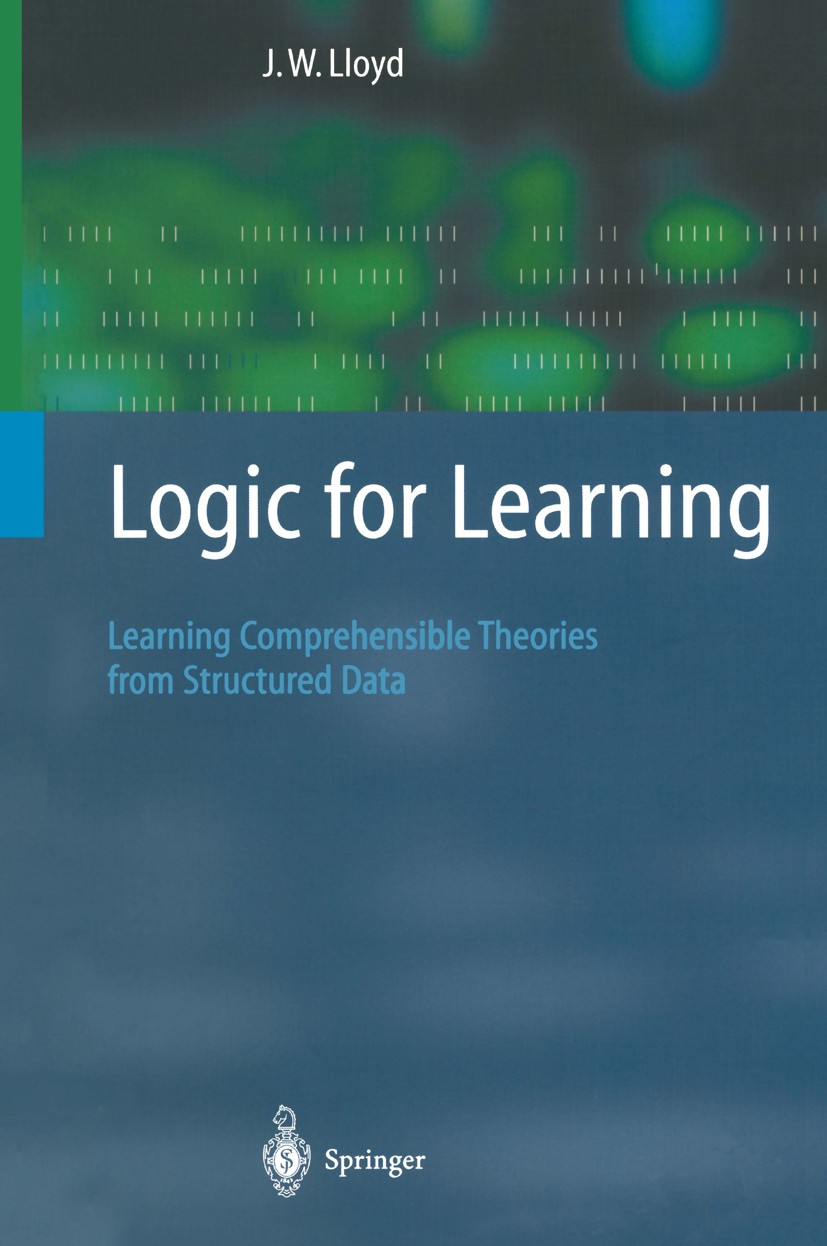| 书目名称 | Logic for Learning | | 副标题 | Learning Comprehensi | | 编辑 | J. W. Lloyd | | 视频video | http://file.papertrans.cn/589/588006/588006.mp4 | | 概述 | The first book on learning and knowledge representation based on higher-order logic..Includes supplementary material: | | 丛书名称 | Cognitive Technologies | | 图书封面 |  | | 描述 | This book is concerned with the rich and fruitful interplay between the fields of computational logic and machine learning. The intended audience is senior undergraduates, graduate students, and researchers in either of those fields. For those in computational logic, no previous knowledge of machine learning is assumed and, for those in machine learning, no previous knowledge of computational logic is assumed. The logic used throughout the book is a higher-order one. Higher-order logic is already heavily used in some parts of computer science, for example, theoretical computer science, functional programming, and hardware verifica tion, mainly because of its great expressive power. Similar motivations apply here as well: higher-order functions can have other functions as arguments and this capability can be exploited to provide abstractions for knowledge representation, methods for constructing predicates, and a foundation for logic-based computation. The book should be of interest to researchers in machine learning, espe cially those who study learning methods for structured data. Machine learn ing applications are becoming increasingly concerned with applications for which the | | 出版日期 | Textbook 2003 | | 关键词 | Prolog; algorithmic learning; artificial intelligence; computational learning; computational logic; highe | | 版次 | 1 | | doi | https://doi.org/10.1007/978-3-662-08406-9 | | isbn_softcover | 978-3-642-07553-7 | | isbn_ebook | 978-3-662-08406-9Series ISSN 1611-2482 Series E-ISSN 2197-6635 | | issn_series | 1611-2482 | | copyright | J. W. Lloyd 2003 |
The information of publication is updating

|
|
 |Archiver|手机版|小黑屋|
派博传思国际
( 京公网安备110108008328)
GMT+8, 2026-1-19 09:17
|Archiver|手机版|小黑屋|
派博传思国际
( 京公网安备110108008328)
GMT+8, 2026-1-19 09:17


